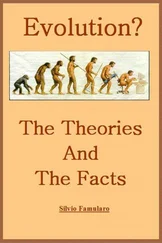It would have to do for now.
Some of the red dots were spilling their way, undisciplined dribbles of color draining off the blocked artery of Highgate Road.
“Company.”
Petrovitch strode on, and suddenly, there were four—no, five—Outies coming down the street at him. They stopped when they saw him, though a couple of them looked around fearfully behind them to check for cars.
Miyamoto drew his sword, and Petrovitch had the opportunity to reflect on what a brilliant sound it made, a clear ringing like a bell.
One of the Outies had a gun, what looked like a shotgun: fat barrels side by side, and a half-empty bandolier of red shells. The others had crude spears, nothing more than pre-Armageddon blades grafted onto long poles. Effective, but hardly worth emptying a city for.
The Outies had been smart, too. They’d made sure their vanguard all had guns. Whenever MEA fought them, it had been bullet for bullet, shell for shell. It had given the illusion of a massive well-equipped army, an illusion they’d all fallen for.
It was kon govno, pure and simple. The speed of the advance, the crushing tidal wave of panic, the complete absence of information from beyond the front line, had served just one purpose.
Petrovitch stared at the man with the shotgun, who was feeding two cartridges into the cracked breach.
Crosshairs formed, and Petrovitch felt his arm come up, lock into place. It was extreme range for both of them, but it was closing every moment as they walked toward each other.
The shotgun snapped shut, and it was raised to a shoulder.
Miyamoto started to look left and right for cover. “You must get down.”
Petrovitch squeezed the trigger, smooth and certain. His aim was adjusted for everything: his motion, his target’s, air pressure, windspeed, bullet trajectory, but still there were variables. Imperfect aerodynamics, uneven powder burn, the barrel of the automatic being out of true by fractions of a millimeter.
He was aiming for his chest, and caught his upper arm instead. The man spun around, the shotgun pointing briefly at the sky before crashing down. One of the barrels boomed and spat smoke, and an Outie was thrown hard against the side of a parked van. He slid down and didn’t move.
Now it was three against two: one older woman, two younger men, all dressed in that uniform of dirty browns and blacks. They looked at each other, uncertain.
Petrovitch spread his arms out wide and kept on walking. “You seem to be in my city.”
The woman found her voice. “City ours,” she called out, even though she was of an age to have received a formal education in what had been England. “City burns.”
It struck him that these Outies were a family group: a tribe, a clan, at the very least a mother and her two sons, and the man dead would have been an uncle or a cousin. The other man on the ground had made it to his knees, and he was shuffling toward the fallen shotgun. There was one cartridge still loaded, and he seemed determined to show he could fire the thing one-handed.
“I always thought it was pillage first, then burn. But whatever,” said Petrovitch, “there’s been a change of plan. Prepare for the New Machine Jihad.”
Behind them, a car rolled around a corner, its red bonnet already badly dented, its windscreen punched through and roof warped. It was leaking radiator fluid, but it would last long enough for what he was going to use it for.
It gunned its engine and raced forward.
23

T hey walked on in silence as Petrovitch pushed shotgun cartridges out of their loops and into his pocket. Some of the houses either side of them were on fire, burning freely, always centered on one property that was starting to collapse. Bright embers spilled into the air like seeds and rose up on fiery drafts. The heat from them made the air flicker.
“What?” he finally said.
Miyamoto wouldn’t look at him. “That was… distasteful.”
“I’m sorry? Distasteful? What the huy is this?” Petrovitch took the last shell and examined the breach mechanism. He downloaded a video that told him how to load it safely and not shoot his foot off in the process.
“You… we should have given them a chance to surrender. That would have been more,” and Miyamoto pursed his lips, “honorable.”
“You know what? You can take your stupid bushido code and you can za cyun v’shopu. This isn’t feudal Japan. This is yebani Stalingrad: a meat-grinder battle where the first thing that dies is mercy.” He rammed the plastic cartridge home and snapped the gun closed. “The Soviets won Stalingrad by being utterly ruthless about human life. That meant not tying half their men down looking after Nazi prisoners.”
“Seeing who your teachers are, I am not surprised by the lessons you have learned.”
Petrovitch snorted. “In Russia, lessons learn you. But let’s go with this for a moment: they didn’t look like they wanted to surrender. Quite the opposite.”
“You drove over them.”
“Yeah. No cries of ‘we surrender’ at that point.”
“And then you reversed back.”
“Even then one of them was still trying to get up, and you made me waste a bullet on him. Swords don’t need reloading.” The road they turned into to head up the hill toward Highgate was littered with bodies like spilled grains of cooked rice. Some of them were still just about alive. Others lay in pools of wet blood and were patently dead.
Petrovitch scanned the ground for guns, or other ranged weapons, but couldn’t see any. Just blades and clubs and spikes. At the top of the road, there were tail-lights and sounds of mayhem.
“So, let’s say that they’d surrendered, the four of them. We’d have three Outies, plus the one I’d shot. What were we going to do with them? Disarm them? They’d just walk into the nearest house and tool up. Tie them up? The next Outies through would let them go. Take them back to the relevant authorities? The two of us are the authorities.”
Miyamoto stepped over a twisted corpse, spine broken, arm bent unnaturally. “You labor the point. We still should have offered.”
“And that’s precisely why they’re five k from the Thames and have turfed twelve million people out of their homes.” Petrovitch studied his map. The cars were a stop-gap, enough to clear a path for him to the coach depot and little more. The Outies would be back. “We’re too yebani civilized. We’ve forgotten that there’s something to fight for.”
“But do we have to fight like this?”
“Yeah. We do.”
“You mean you do.” Miyamoto almost sneered, and Petrovitch was tempted to hit him very hard somewhere painful.
Instead he stopped, stood in front of him and waited until they were toe to toe, then screamed in his face.
“Wake up! What the huy is wrong with you, man? Two hundred thousand Outies are busy slaughtering their way to victory, and you want to play nice? Nice is what put us in this pizdets in the first place. Look around you: where are the people who normally live here? The ones that didn’t run are waiting, cowering behind locked doors before they’re cut up into little bits like those two kids outside Lucy’s.” He took a breath. “Or they’ve already been cut up. So, yeah. I’m going to kill and kill and kill until the Outies finally get the message that they’re not wanted here. And I will carry on killing them all the way back to the M25. And then I’m going to bomb the survivors and send an army out to sweep the rest away. Then, and only then, will I think about nice. Got that?”
Читать дальше













